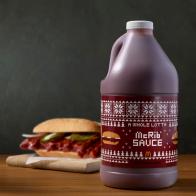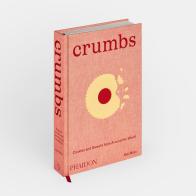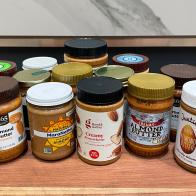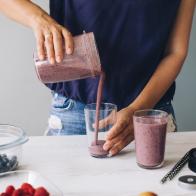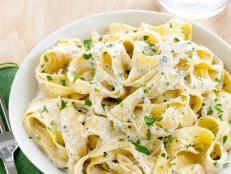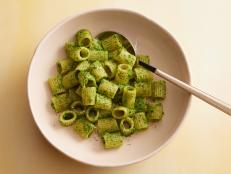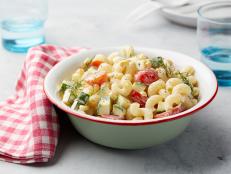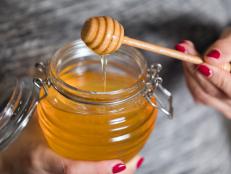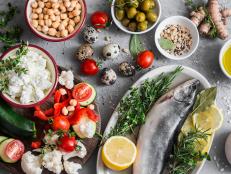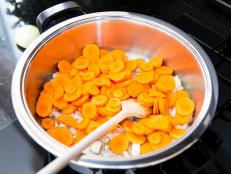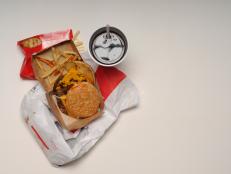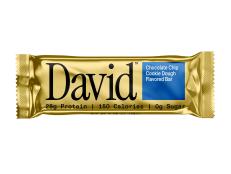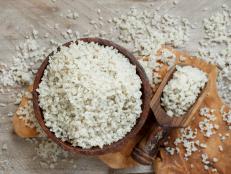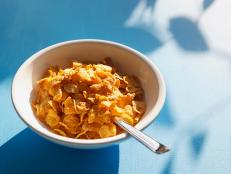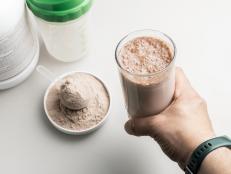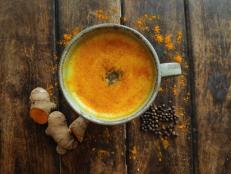Is Pasta Healthy?
Why you can (and should!) embrace pasta as part of a healthful diet, according to a dietitian.

Inti St Clair/Getty Images
As a dietitian, one of the biggest "aha" moments I get from my clients is when I mention pasta is a healthy food.
“You mean I can eat pasta again?!”
Yes! Thanks to the ease of preparation and the multitude of ways in which pasta solves the what’s-for-dinner dilemma, pasta is a popular choice for many weeknight dinner, but it’s often taken off the menu because of its carb content.
However, if pasta is cooked right, it's actually a low glycemic index food and a source of slow digestible starch. This means that pasta delivers a slow and sustained release of carbs so it takes longer to digest, keeping you fuller longer.
One cup of cooked spaghetti has approximately 220 calories, 1 gram of fat and no cholesterol. Most pastas on the market are enriched with iron, too. Whole-grain pastas contain about the same calories as regular pasta but have more protein, fiber and vitamins. As an added bonus, all that protein and fiber means that you’ll feel more satisfied by eating less.
While there is certainly plenty of research indicating that eating more protein can be helpful in the short-term for weight loss, researchers have found it’s generally carbohydrate-rich diets such as the Mediterranean Diet that are linked to living longer.
In a recent study in The Lancet Public Health, scientists looked at the amount of carbohydrates a large population of people ate at age 50. Those who ate a moderate amount of carbohydrates (about 50 to 55 percent of their calories as carbs) had an estimated life expectancy of around 83, compared to 82 years for high-carb (more than 70 percent of calories) eaters, and age 79 for low-carb (less than 40 percent of calories) eaters. Those who ate more plant-based protein and fat fared better overall.
Many people top pasta with nutrient-rich tomato sauce or other vegetables which may be why researchers reported in Frontiers in Nutrition that eating pasta was associated with a better diet quality. Both kids and adults who ate pasta also consumed more fiber, folate, iron, magnesium, and vitamin E when compared with people who didn’t eat pasta. Additionally, eating pasta was associated with a lower body weight in women.
High-quality pasta is made from durum wheat which has a high protein content. Brand-name pasta is also made through a unique process called extrusion and is dried to create a very hard protein-starch matrix which allows pasta to digest and metabolize more slowly than other refined grains when cooked correctly.
What's the "correct" way to cook pasta? Al dente. Al dente means "still firm when bitten." Here’s how to do it right.
- Don’t overcook pasta. This water-logs it. “If pasta soaks up too much water during the cooking process, the digestive system is able to break it down much easier, so it digests faster,” explains Frank A. Manthey, PhD, Professor of Cereal Science, Durum & Pasta Quality at North Dakota State University. (Most of the durum wheat in America is grown in North Dakota.)
- Cook it exactly as directed on the box. This includes using the amount of water suggested. “We test our box directions using stoves and pots which home cooks would have. The amount of water we suggest is important, so that the pasta is not overcrowded in the pot and rehydrates evenly, without getting stuck together or clumping at the bottom of the pan,” says Lorenzo Boni, Executive Chef of Barilla America.
- Set your timer when you put the pasta into the boiling water. “Don’t set your timer when the water comes back to a boil, after adding the pasta. If you do, it will overcook,” says Boni.
- Drain it immediately. As soon as the box-specified cooking time for al dente ends, drain it or add it to a sauce and serve immediately. Alternately, if you plan to cook pasta in a sauce for a few minutes, cook the pasta for one to two minutes less than the directed cooking time.
Serena Ball, MS, RD is a registered dietitian nutritionist, food writer, and mom of four children. She blogs at TeaspoonOfSpice.com and is the author of the best-selling The 30-Minute Mediterranean Diet Cookbook and the newly released Easy Everyday Mediterranean Diet Cookbook. Follow her @TspCurry on Twitter and Instagram.












